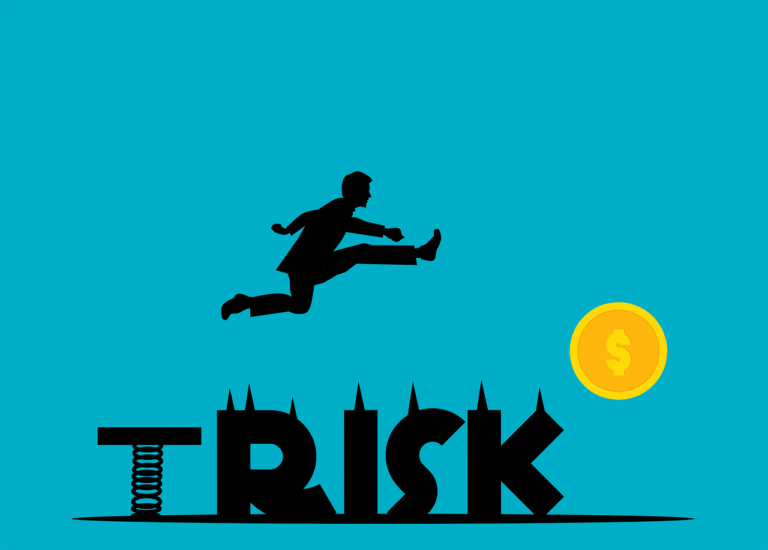Loan Sharks in Nigeria: How They Operate
Learn how to spot loan sharks in Nigeria and protect yourself from their predatory lending tactics. Stay informed and avoid falling into debt traps.
Loan sharks charges high interest and uses stiff methods to collect payments. These lenders engage in unethical practices by offering quick loans through apps. While violating privacy, fair lending rules, and consumer rights. They publicly shame those who default on loans and this has become very common and damaging. Despite their bad reputation, some people still turn to them for fast loans due to the economic condition in Nigeria.
The economic conditions make quick and no-collateral loans tempting. However, it became clear to consumers and regulators that if loan sharks weren’t stopped, Nigeria’s growing digital lending sector could quickly turn into a predatory landscape.
Loan Sharks in Nigeria
The emergence of loan apps in Nigeria has shifted the way people borrow money. While these apps might seem like an easy way to get loans without needing collateral, the reality is often more troubling. Some of these apps, acting as loan sharks, lure people in with promises of quick cash during emergencies but end up taking advantage of those in need.
Recognizing the risks and spotting the warning signs is key to staying safe from these predatory lenders.
These shady apps trick people into borrowing, only to take their money through unfair practices. Many borrowers have shared their disturbing stories online and exposed the tricks used by these platforms. Some of the well-known loan sharks in Nigeria include SokoLoan, Kashkash, LCredit, 9Credit, iCredit, OKash, and GoCash.
How Loan Sharks Operate
Loan sharks In Nigeria work outside the law and avoid regulation by the Financial Conduct Authority (FCA). They offer loans with high interest rates, often without proper documentation or clear repayment terms. These lenders target people struggling financially, and when repayment becomes difficult, they resort to threats and pressure, trapping borrowers in a cycle of debt.
How to Spot Loan Sharks in Nigeria
Identifying loan sharks can protect you from falling into their traps. Here are key signs to look out for:
No License or Registration:
Legitimate lenders have proper licenses from relevant authorities. Loan sharks often operate without these approvals.
Aggressive Sales Tactics:
Loan sharks push borrowers with pressure, rushing them into quick decisions.
Unclear Terms and Conditions:
Beware of lenders who avoid giving clear terms, use vague language, or don’t offer written agreements.
Very High Interest Rates:
Loan sharks charge high interest rates, often beyond what is legally allowed.
Unreasonable Fees and Penalties:
These lenders may impose hidden fees that inflate the cost of borrowing.
Threats and Blackmail:
Some resort to threats or blackmail to force repayment.
Unsolicited Offers:
Loan sharks often send loan offers through random texts or calls. Legitimate lenders don’t typically do this.
No Physical Office:
These lenders often don’t have a physical address or office, making them harder to track.
No Credit Checks:
Loan sharks often skip credit checks, which could indicate illegal operations.
Lack of Documentation:
If a lender doesn’t provide receipts or loan agreements, that’s a red flag.
READ ALSO: Securing student loans in Nigeria: know All
READ ALSO: How to Avoid Loan Scams in Nigeria: Full Guide 2024
READ ALSO: Tips for Negotiating Better Loan Terms in Nigeria 2024
READ ALSO: Loan App Without BVN in Nigeria 2024: Know All
Steps Taken By The Regulatory Body to Curb Loan Sharks
To address the problem, Nigeria’s FCCPC has enforced corrective measures on offending digital lenders. Based on investigations, these lenders agreed to follow rules set by the FCCPC, such as:
- Stopping harassment of borrowers’ contacts.
- Ending abusive language in communication with defaulters.
- Providing transparent loan repayment fees and clear interest calculations.
- Creating a system for dispute resolution and reconciliation of disputed balances.
How Loan Sharks Violate Borrowers’ Rights
Loan sharks use various unethical methods, including:
Privacy Invasion:
They gain access to your contacts and photos to use as leverage if you miss a payment.
Sky-High Interest Rates and Short Terms:
They charge extremely high rates with very short repayment periods, often less than a week.
Lack of Identity Verification:
Many operate without verifiable owners, physical offices, or even websites.
Urgency and Hidden Costs:
They pressure borrowers to act quickly, often hiding additional fees and deducting interest before disbursing the loan.
Helping Someone Who Is a Victim
If you know someone dealing with a loan shark, here are ways to help:
- Listen and provide emotional support.
- Assure them that they are not at fault.
- Remind them that loan sharks have no legal right to recover the debt.
- Encourage them to seek medical help if needed.
- Direct them to support services for further assistance.
Tips to Avoid Loan Shark Scams
To avoid loan shark scams, follow these tips:
Borrow from Reputable Lenders:
Always use licensed banks or financial institutions and check reviews from other borrowers.
Be Cautious of Unsolicited Offers:
Legitimate lenders don’t send random texts or calls with loan offers.
Research the Lender:
Verify their office, website, and contact information before accepting any offers.
Avoid Upfront Fees:
Legitimate lenders don’t ask for payment before loan approval.
Read the Terms Carefully:
Make sure you understand the interest rates, fees, and repayment terms before signing anything.
Don’t Rush:
Take your time to review any loan offer and avoid lenders who pressure you into quick decisions.
Compare Interest Rates:
Check if the rates offered are within the market average.
Protect Personal Information:
Only share sensitive information with verified lenders to prevent identity theft.
Report Suspicious Activity:
Report suspected loan sharks to authorities or regulatory agencies.
Get Professional Advice:
If unsure, consult a financial advisor or credit counselor before taking a loan.
Conclusion:
Loan sharks in Nigeria present significant dangers to borrowers, exploiting financial struggles through predatory tactics. High interest rates and privacy violations are common practices as these lenders operate illegally, often trapping victims in relentless debt cycles. Recognizing the warning signs and choosing licensed, transparent lenders is essential for safeguarding your financial well-being.
As regulatory bodies continue to regulate these illegal operators, individuals must stay informed. And make responsible borrowing decisions to avoid falling prey to these exploitative schemes.







